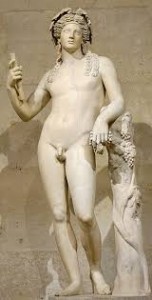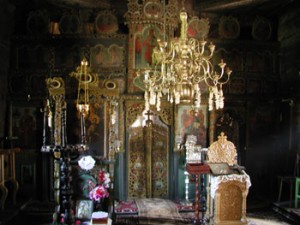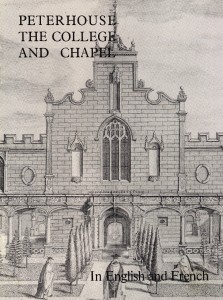Five Book Reviews: Memoirs of Adrian Marino, Gheorghe Rafael-Stefanescu, Boris Johnson, George Orwell and Joseph Stalin
 VIATA UNUI OM SINGUR
VIATA UNUI OM SINGUR
by Adrian Marino
Edition: Paperback
Sour Grapes: “Diary of a lonely man” (in Romanian)
3.0 out of 5 stars
I bought this memoir because it reflects the complex relationship of Romania’s privileged communist class, with the lower echelons of the society. In addition, the narrative throws some light on the Romanian diaspora, mostly in Paris. The author is a complex and complicated individual, who wanted his memoirs published posthumously, to avoid the lethal fall-out of those moral dwarfs, with big egos, of which Romania is never in short supply. In this latter respect Marino’s memoir does not disappoint the general reader: it should equally interest those academics focusing on the social history of Communism.
This is not altogether an easy, or a pleasant read, as it is interwoven with a great deal of subjectivity. Neither the author nor his foes (and there are plenty of them) come out very well, in the end!
It is a bit heavy going, but worthwhile reading.
 Amintiri din România socialista
Amintiri din România socialista
by Dr.Gheorghe Rafael-Stefanescu
Edition: Paperback, Price: £5.39
Sad, Drab & Dour life in Communist Romania:
Socialist Romania Reminiscences (in Romanian)
3.0 out of 5 stars
This book is set apart for several reasons: its author – a native of Transylvania, witnessed the harshest period of class-warfare and discrimination, during the early years of Communist grip on Romania. The style is without any frills, in a direct, journalistic manner, without any ambition or pretense of literary value. It is a rather matter-of-fact, bare-bones diary, of what life was like under the sordid years of Romanian communism.
In spite of such backdrop, this is not, by any means, a sad account, on the contrary it has its black humour, although the period described is redolent of the darkest years of dictatorship.
The author presents a bland, stenographic sequence of the drab, and dour life behind the Iron Curtain, during the post-war experiment with Marxist ideology. Such account represents a worthwhile reminder of times experienced not such a long time ago, especially that the current Romanian-controlled amnesia tries to airbrush the recent past from the public psyche.
Worth reading as a testimony, especially as an antidote to the pre-programmed loss of memory in present-day Romania!
 Boris: The Rise of Boris Johnson
Boris: The Rise of Boris Johnson
by Andrew Gimson
Edition: Paperback
Boris – predictable in his unpredictability
5.0 out of 5 stars
Finished this biography, which I found amusing and informative, giving a more rounded view of Boris and making him more humane than he otherwise appears: spontaneous, refreshing, cultivated, intelligent, predictable in his unpredictability….
“Cultivated” you say? but this is a cardinal sin which is looked upon with greatest suspicion, in Great Britain! Come on, who wants to be “cultivated”?
 Orwell, the Transformation
Orwell, the Transformation
by Peter Stansky
Edition: Hardcover
An informative, illuminating read:
5.0 out of 5 stars
This account’s period stretches from the author’s return from Paris and his literary debut (first memoirs) to his last days in the Spanish Civil war and his return to England.
This is the most meaningful metamorphosis in Orwell’s life, during which time he realizes the underlying workings of Communism. Such ideology he ditches to refute it completely in his future best sellers: “1984” and “The Animal Farm”. We find Orwell, as an intelligent man, flirting with the left-wing dictatorship (and the Civil War) only to reject it without a right of appeal. As an observer, living his life’s experience at first hand, this is a compelling experience
It is precisely the stuff for which George Orwell’s works were completely banned in Eastern Europe, to the last days of Communism.
I read Orwell’s books behind the Iron Curtain, in most curious circumstances: these were handwritten copybooks from originals which were NOT available to the public. Such hand-written copies were passed on, at one’s peril, to other keen readers, for whom ‘1984’ was not fiction but a living reality – if a living hell!
A most illuminating reading.
 World War II: Behind Closed Doors – Stalin, the Nazis and the West
World War II: Behind Closed Doors – Stalin, the Nazis and the West
by Laurence Rees
Edition: Hardcover
4.0 out of 5 stars
When an English Public School Boy meets a ruthless Georgian Mouzhik
There is no doubt that history of WWII and in particular a book on the main players on this huge chessboard of Humanity, will always command a keen public readership: Laurence Rees’ study is one such case. The book is peppered with light passages one of which is worth quoting below:
Winston: “Marshal Stalin, I believe God is on our side. At least I have done my best to make him a faithful ally.”
Uncle Jo: “And the devil is on my side. Because, of course, everyone knows that the devil is a Communist and God, no doubt, is a good Conservative.”
(Teheran Conference, November 1943)
But let us make no mistake – Stalin was a ruthless mouzjik and the cultivated and sophisticated Winston was no match to him, At Teheran Stalin has contrived for NKVD spy Ana Pauker, (later to become Romania’s Foreign Minister) to double as Roosevelt’s hotel chamber maid… the devil never left to chance any such minor details!
During WWII the Romanian Princess Marthe Bibesco (1883-1973), a sister-in-law of Lady Elizabeth Asquith, wrote several times to Churchill, on one occasion to pass on a request from the Romanian Government for a separate peace with the Allies.
From recently released documents in British archives it appears clear that British civil servants were not keen to use Princess Bibesco’s offer, stating that such potential intermediaries `were not in short supply’ – a typical arrogance of faceless and myopic power broking civil servants at Whitehall at the sunset of the British Empire. Had they grasped the nettle, the political map of Europe might have been quite different, with Eastern Europe not being enslaved and Churchill not having any reason to coin the expression `Iron Curtain’, as a metaphor for the division of Europe. But this was not to be and it is an instance where poets could show a better intuition than mandarins, or politicians.
Laurence Rees is a consummate researcher with the gift of distilling the essence of History.




















